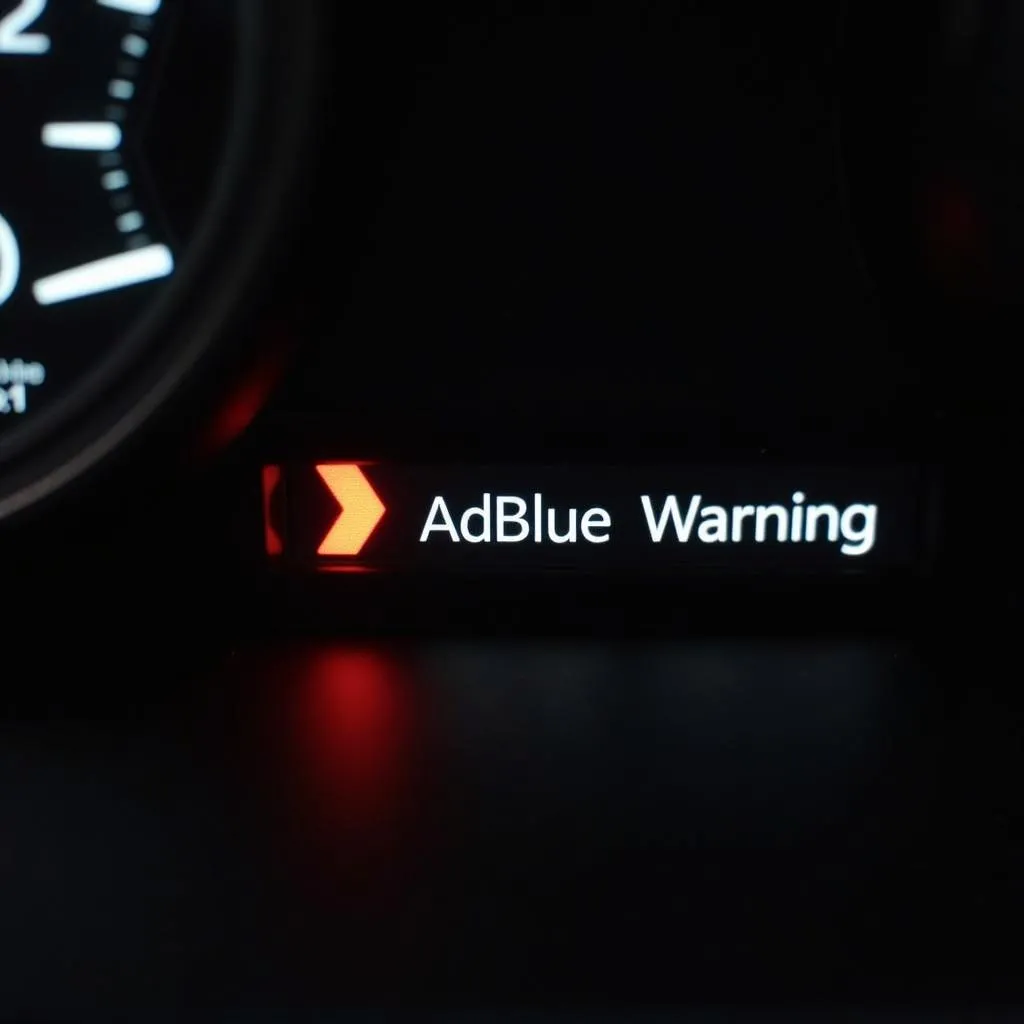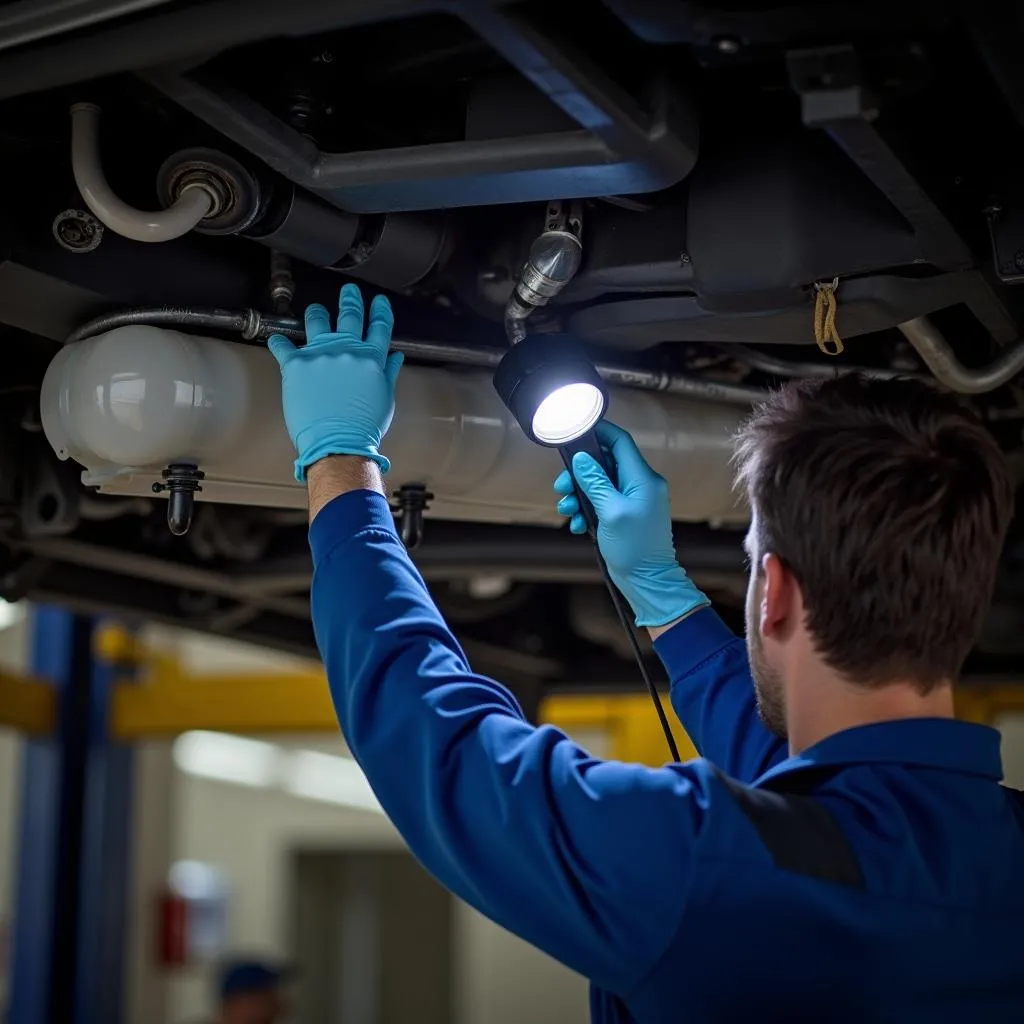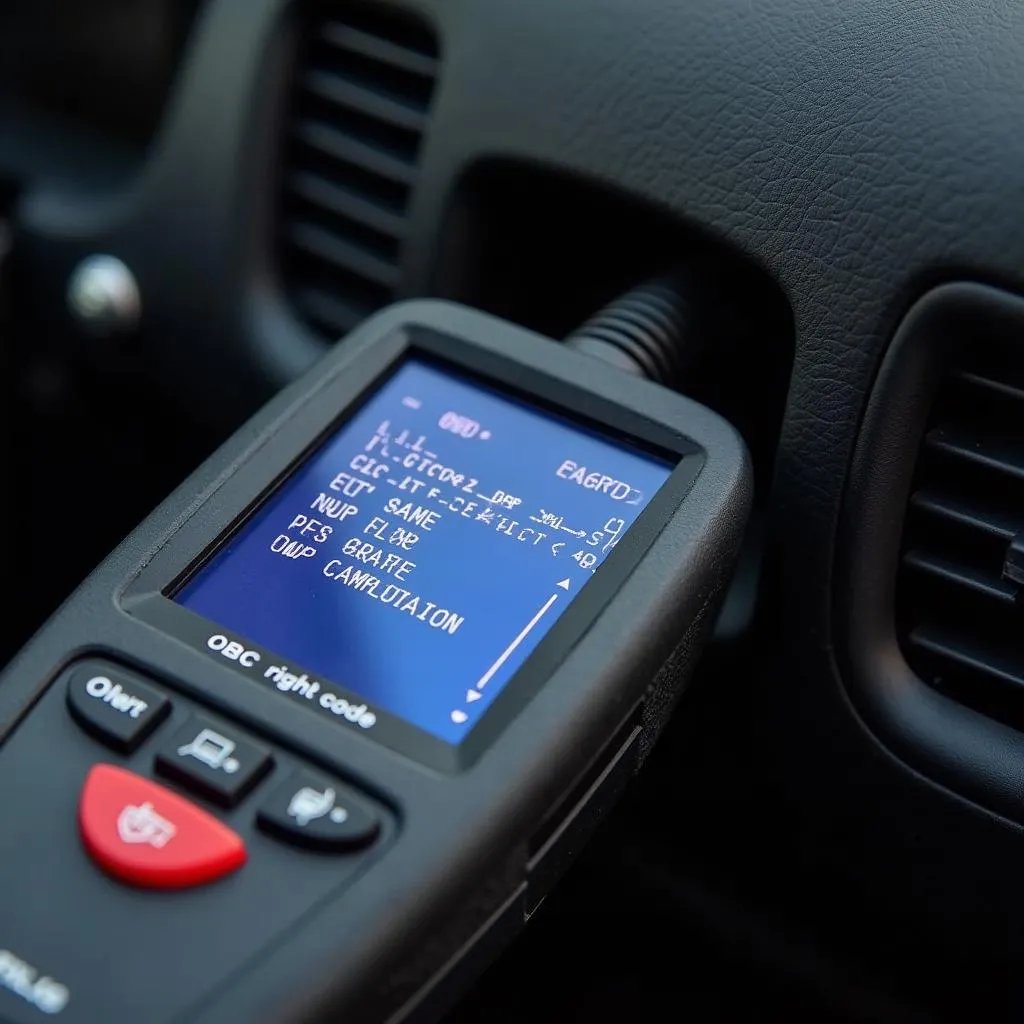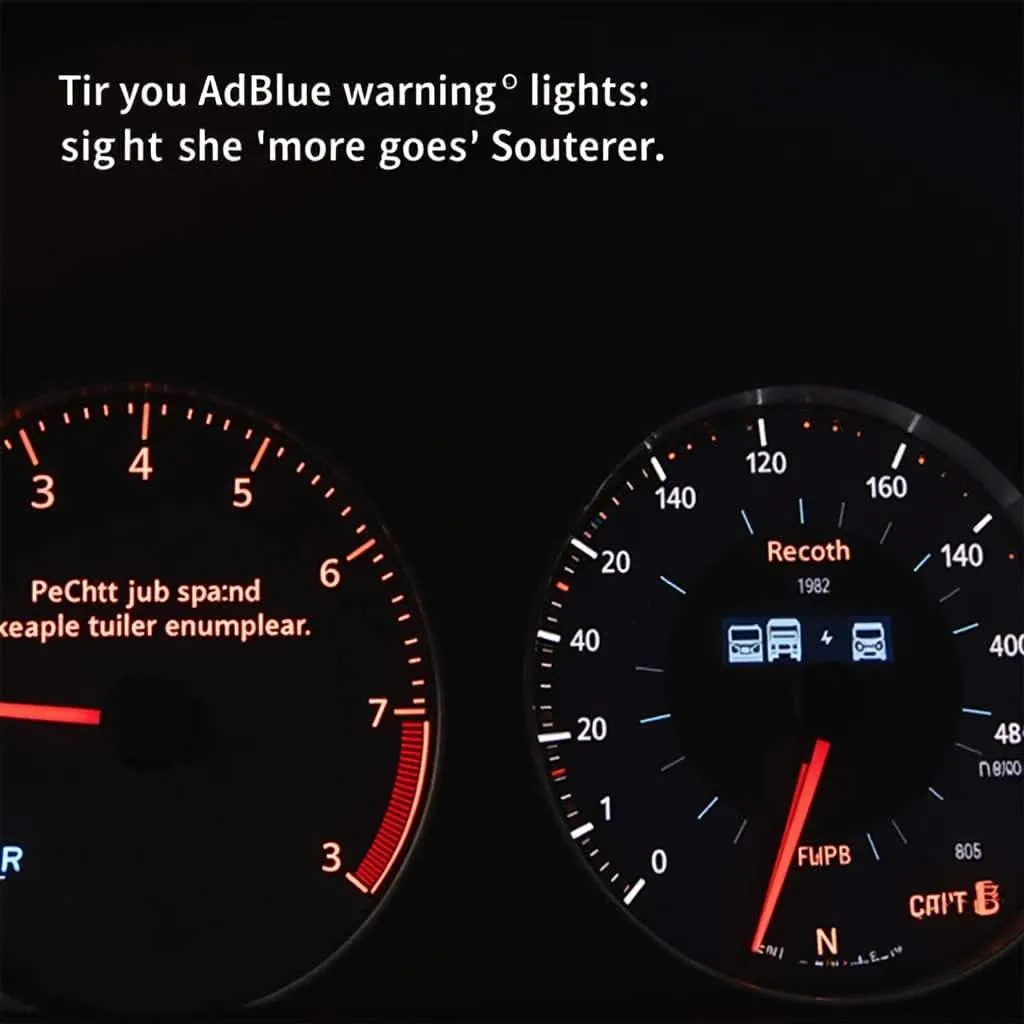Experiencing the dreaded “AdBlue system fault” warning on your dashboard? You’re not alone. One common issue drivers face is an AdBlue system that refuses to reset, even after refilling. This can lead to reduced engine power and even prevent your vehicle from starting. This guide will walk you through the common causes, how to diagnose the problem, and potential solutions to get you back on the road.
Why Won’t My AdBlue System Reset?
The AdBlue system, also known as Selective Catalytic Reduction (SCR), is an emissions control system that reduces harmful nitrogen oxides (NOx) from your vehicle’s exhaust. When the AdBlue level gets low, the system triggers a warning light. However, several factors beyond low fluid levels can cause an AdBlue reset failure:
- System Malfunction: A faulty AdBlue sensor, pump, or control unit can send incorrect signals, preventing a reset.
- Incorrect Refill Procedure: Not following the proper refilling procedure outlined in your owner’s manual can lead to airlocks in the system or misreads by the level sensor.
- Software Glitch: Occasionally, a software error in the vehicle’s ECU (Engine Control Unit) can prevent the AdBlue system from resetting properly.
- Frozen AdBlue: In extremely cold temperatures, AdBlue can freeze, blocking the system and causing malfunctions.
Identifying an AdBlue Reset Issue
The first sign is usually a persistent AdBlue warning light on your dashboard, even after refilling. You may also experience:
- Limp Mode: Your engine’s power might be reduced to limit emissions.
- Starting Problems: In some cases, the car might refuse to start once the AdBlue level is critically low.
- Error Messages: The dashboard might display messages like “AdBlue System Fault,” “SCR System Fault,” or similar warnings.
 Car dashboard showing AdBlue warning light
Car dashboard showing AdBlue warning light
What You’ll Need for Diagnosis & Repair
- OBD-II Scanner: This tool reads your car’s diagnostic codes, identifying the root cause of the AdBlue reset failure.
- AdBlue Fluid: Ensure you’re using the correct AdBlue fluid specified for your vehicle.
- Basic Tools: You might need a wrench or pliers to access certain components like the AdBlue filler cap.
Troubleshooting and Fixing the Problem
Before attempting any repairs, always refer to your vehicle’s owner’s manual for specific instructions:
- Check AdBlue Fluid Level: Ensure you’ve filled the AdBlue tank sufficiently. Refer to your owner’s manual for the correct filling procedure.
- Inspect for Leaks: Visually check the AdBlue tank, lines, and connections for any signs of leakage.
- Read Diagnostic Codes: Use an OBD-II scanner to retrieve any stored fault codes related to the AdBlue system. These codes provide valuable information about the specific issue.
- Address the Root Cause: Based on the fault codes, address the underlying problem. This might involve replacing a faulty sensor, repairing a leak, or updating the vehicle’s software.
 Mechanic inspecting a car's AdBlue system for leaks
Mechanic inspecting a car's AdBlue system for leaks
 Using an OBD-II scanner to diagnose car problems
Using an OBD-II scanner to diagnose car problems
FAQs About AdBlue Reset Issues
Q: Can I drive with an AdBlue system fault?
A: You can drive for a limited distance, but your engine’s performance will likely be reduced, and the car may eventually not start. It’s crucial to address the issue promptly.
Q: Is it safe to reset the AdBlue system myself?
A: While some resets can be performed manually, it’s recommended to consult your owner’s manual or seek professional help, especially if dealing with fault codes or potential system malfunctions.
Q: How often does the AdBlue system need to be refilled?
A: The refilling interval varies depending on your driving style and vehicle model, but it’s typically every 5,000 to 10,000 miles. Always refer to your owner’s manual for guidance.
Q: Can a software update fix an AdBlue reset problem?
A: Yes, in some instances, a software glitch might be causing the issue. Car manufacturers often release updates to address known problems, including those related to emissions systems.
Q: Are there any reliable diagnostic tools for AdBlue systems?
A: Yes, professional-grade diagnostic tools like those offered by Cardiagtech provide comprehensive scanning and analysis capabilities, allowing technicians to pinpoint and resolve AdBlue system faults effectively.
Need Expert Help?
Experiencing persistent AdBlue reset problems? Don’t let it sideline you. Contact CARDIAGTECH today for advanced diagnostics, programming, and remote software installation services. Our team of experts can quickly identify and resolve even the most complex AdBlue system issues, getting you back on the road with confidence.


